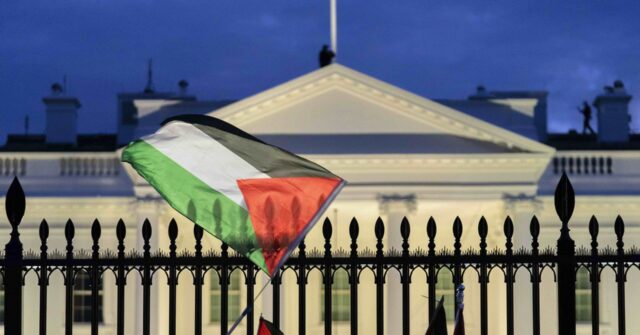The Biden-Harris administration is making headlines as it implements a series of new sanctions against Israeli individuals and organizations, while simultaneously committing a substantial $230 million in additional funding to support Palestinians. This dual action has provoked criticism from various groups, suggesting that the administration is exacerbating tensions between the United States and Israel as President Biden’s term approaches its end. These new sanctions are touted as the most extensive to date, targeting three Israeli entities accused of inciting violence against Palestinians in the West Bank. The coinciding timing of these sanctions with a push from a coalition of nearly 90 congressional Democrats suggests a concerted effort to shift U.S. policy toward a more anti-Israel stance before the incoming Trump administration.
The recent funding allocation to the Palestinians is part of a broader pattern of U.S. financial support since the onset of violence that began with Hamas’s terrorist activities against Israel on October 7. Critics argue that this funding, which has exceeded $2 billion since the incident, potentially facilitates ongoing support for Hamas, raising concerns about the effectiveness of U.S. taxpayer money in promoting peace. The Biden administration’s justification for the sanctions—claiming to target “violent Israeli individuals and entities”—has been met with skepticism, particularly since some of the accused actions involve relatively benign activities such as supplying construction vehicles to settlements deemed illegal by the U.S.
A comprehensive analysis reveals that the sanctions disproportionately affect Israeli Jews, many of whom have not engaged in any significant legal infractions. Critics such as legal scholar Eugene Kontorovich point out that sanctions traditionally focus on severe wrongdoing like terrorism or human rights abuses. In contrast, the Biden administration’s measures target property crimes or merely associational activities, signaling a shift in how the U.S. government categorizes and responds to alleged infringements in foreign policy. The sanctions have raised alarms about their potential violation of constitutional protections in the U.S. concerning free speech and assembly.
Moreover, the Biden administration’s approach has resulted in leniency toward Palestinian organizations that often participate in activities considered unlawful under international anti-terror laws. This selective enforcement raises questions about the administration’s commitment to combating terrorism and its overall approach to Middle Eastern diplomacy. After restoring previous funding routes for Palestinian organizations and the United Nations Relief and Works Agency (UNRWA) shortly after taking office, the Biden administration appears to prioritize financial support for Palestinians, despite ongoing violence against Israel.
In stark contrast, the period of relative calm under the Trump administration quickly ended with the return of hostilities following Biden’s policies taking effect. The long-standing dynamics of Israeli-Palestinian relations have been complicated by these recent developments. They have led to increasing frustrations among Israeli leaders as well as among American constituents who hold differing views on U.S. foreign policy in the region. The administration’s actions could be seen as a culmination of internal pressures and broader geopolitical considerations which may further distance the U.S. from longstanding ally Israel.
As the Biden administration gears up for a transition of power, the implications of its recent sanctions and funding decisions raise complex questions about the future of U.S.-Israel relations, as well as the efficacy of its approach to resolving the Israeli-Palestinian conflict. With the impending presidency of Donald Trump promising a different stance, these last-minute changes may not only affect diplomatic ties but could also lead to a significant re-evaluation of U.S. strategic interests in the Middle East. The evolving political landscape, fueled by the administration’s policy choices in these closing weeks, is bound to leave a lasting impact on the relationship between the United States and Israel, as well as on the broader dynamics of peace in the region.

